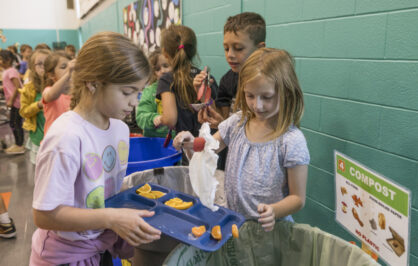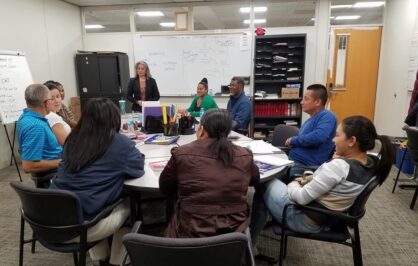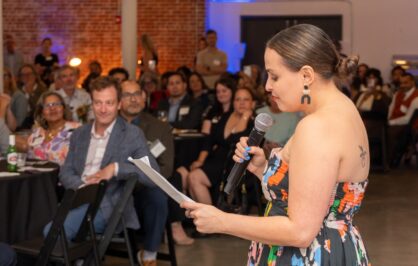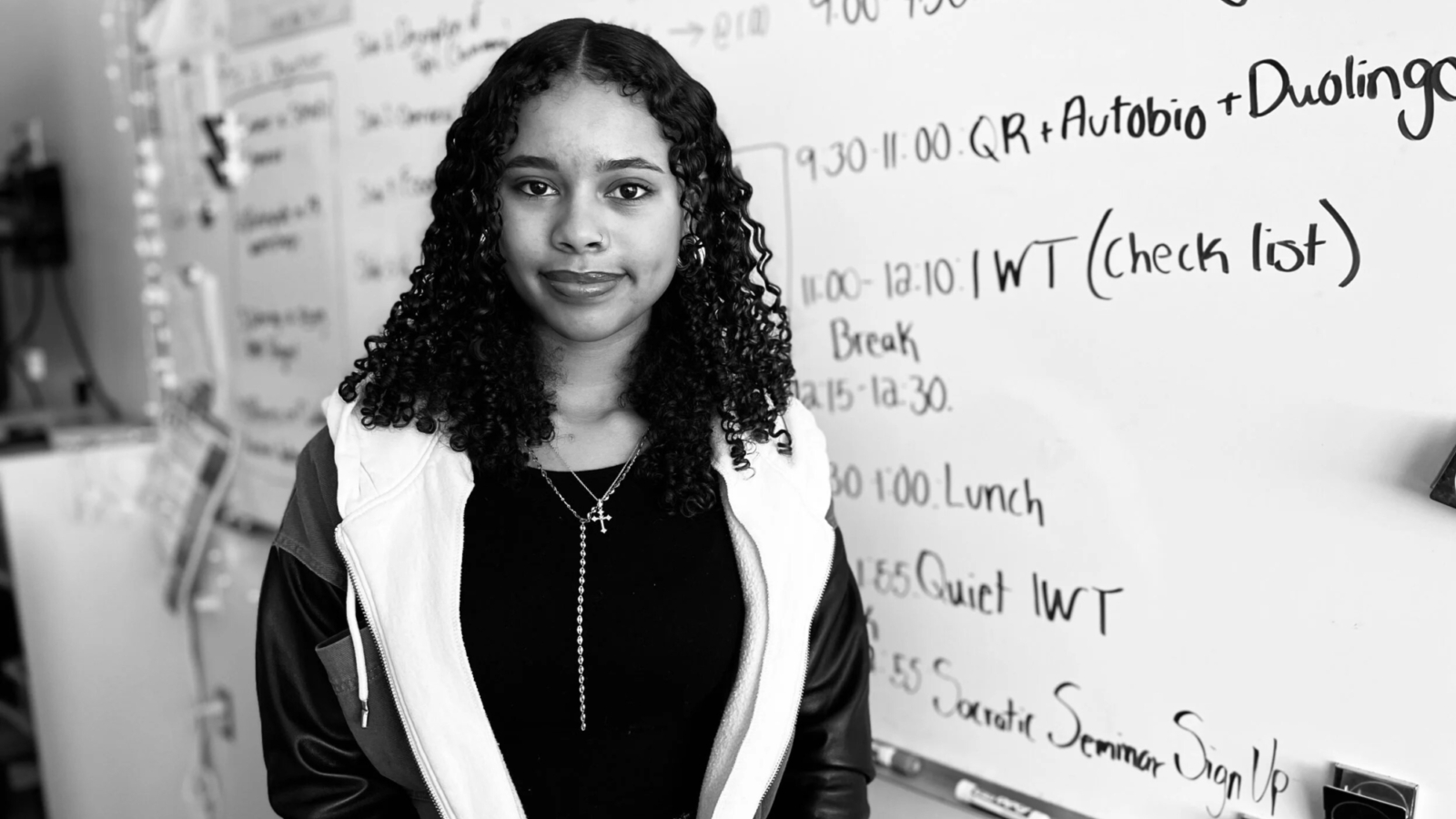
Grants & Scholarships
Small True Things
A project about listening...the kind of listening that makes the person speaking feel real.
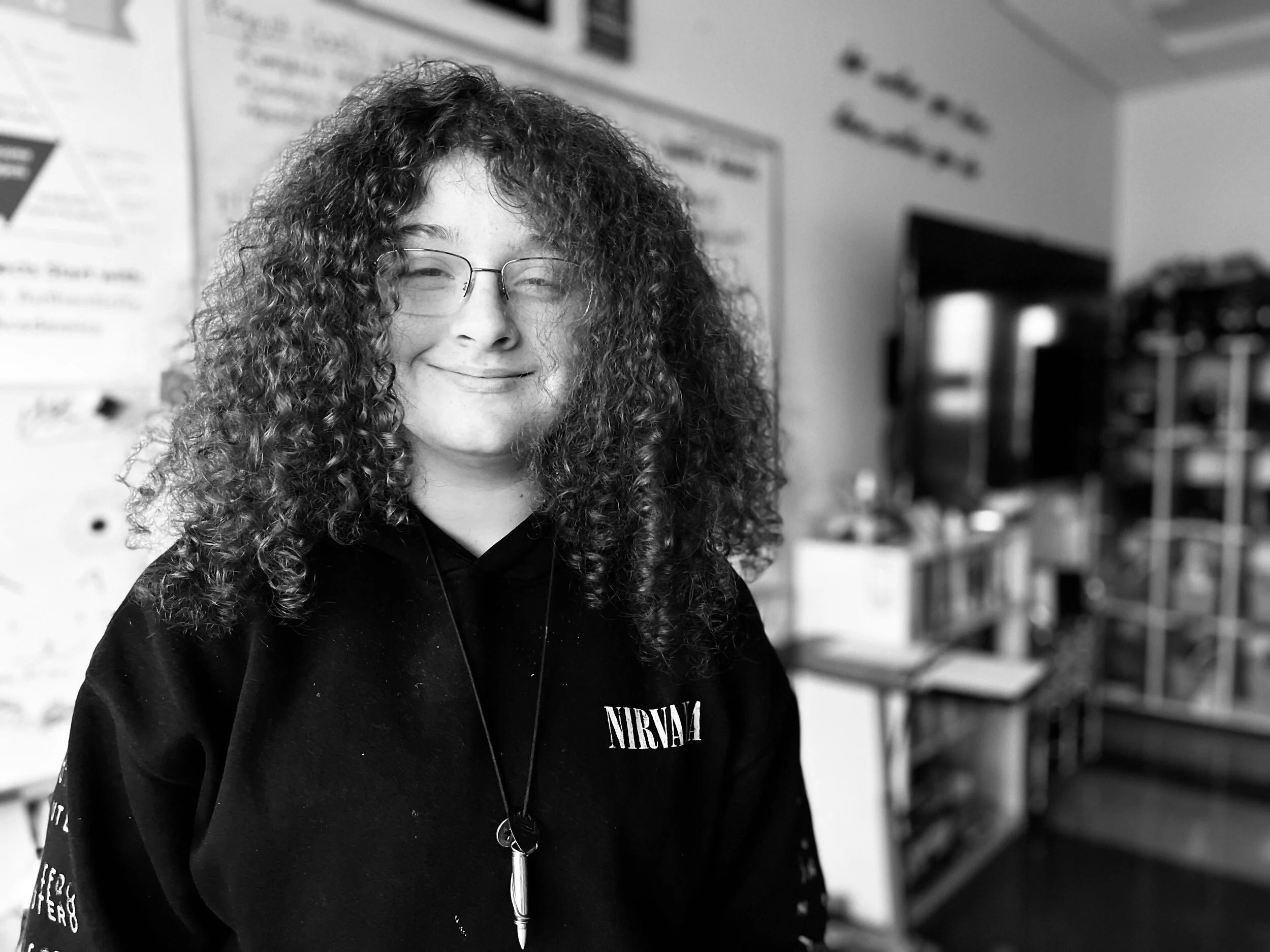
Moe, of Jamestown, knows he has all the attributes of a good friend, but being on the autism spectrum can complicate relationships, as it’s often tough to read social cues. It makes him different, but also freer, in a way, and self-aware. He wants people to know that differences can make you stronger.
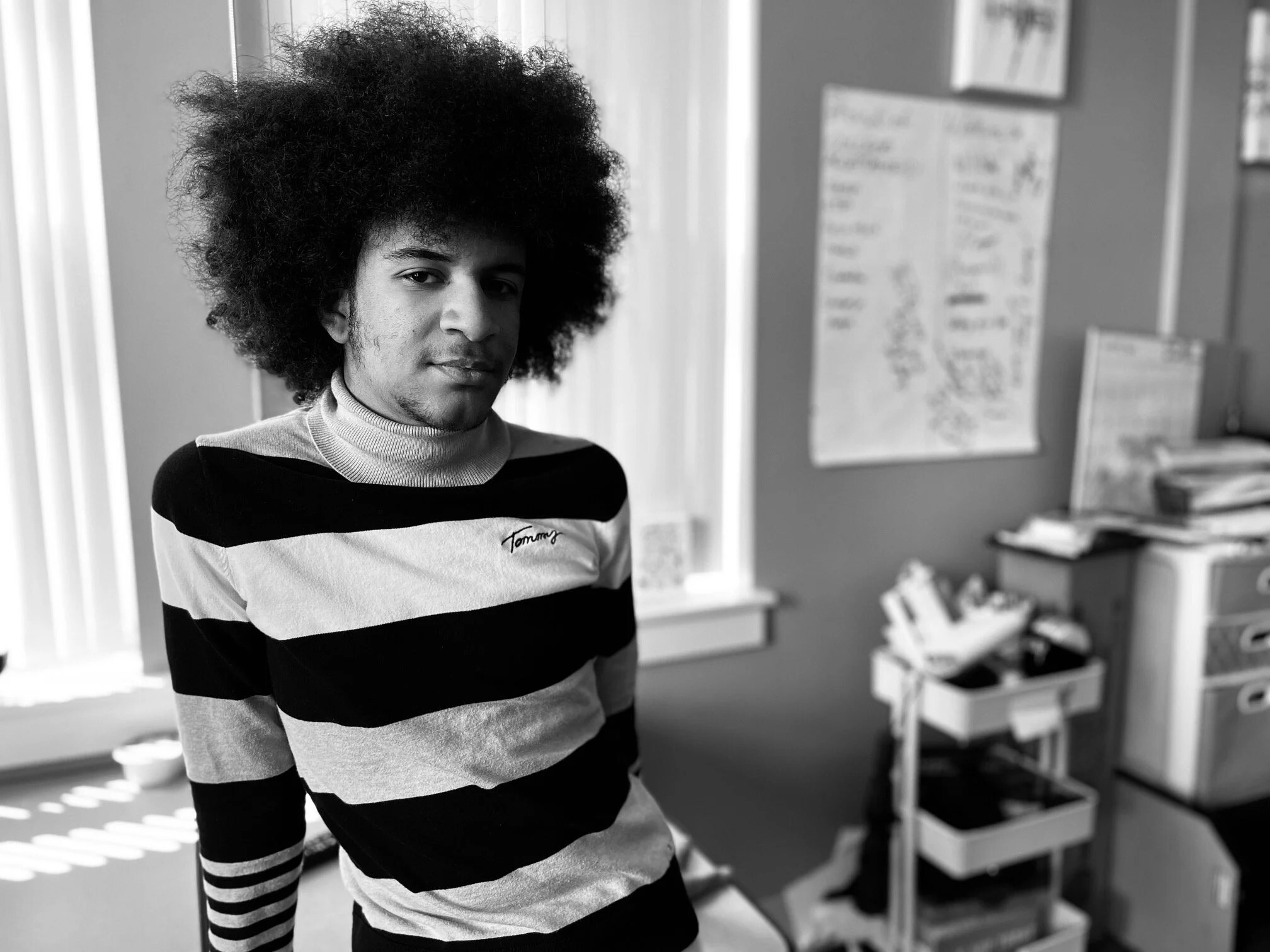
Leaf, of Providence, didn't feel complete until she identified as a transgender female. She cautions against being afraid to express your truth and looks forward to voting in the next election for people that will protect her rights.

Adequoyah, of Richmond, lets her emotions speak through the art of crocheting clothing, and recently crocheted a colorful vest with black and white squares at the center to represent her biracial identity. She reflects on what it’s like to feel as though she doesn’t fit in on either side and how her art mirrors her exploration of the issues surrounding identity.
These voices represent just a few of those captured by Small True Things, an audio recording project that starts by asking: "How would you describe yourself?” and “What's important for people to know about you?"
The project is the collaborative brainchild of co-founder and producer Samantha Broun and fellow radio producer, Erica Heilman. Broun discovered her passion for radio documentaries in her 30s, after earning a master’s degree in education, drawn to what she calls "a powerful and intimate medium." An award-winning producer and 2021 Nieman Fellow at Harvard University, she learned the craft at the Salt Institute for Documentary Studies in Portland, ME, and then went on to work with renowned radio producer and broadcast journalist Jay Allison as the managing editor of Transom.org, an audio storytelling website.
After the height of COVID-19, Broun witnessed the pandemic's impact on her stepdaughter, then in high school. Many students faced not only learning loss but also a social separation that affected entire school communities. Heilman's son, also in high school, confided to his mom that he felt disconnected from his peers - he didn't know the other students, and they didn't know him.
The two mothers discussed their children's struggles, and Heilman - an audio producer and Peabody Award winner for her podcast “Rumble Strip” - saw an opportunity to make a difference.
"Sam, we can do something about this," Heilman told Broun. "If we went into schools with our recorders and do what we do - which is be curious, ask questions, and listen - we can interview kids about who they are and the small true things in their lives."
Small True Things creates audio recordings of students sharing aspects of who they are or experiences from their lives. These recordings are shared with the students and their schools without condition; they aren't tied to curriculum or assignments. They're simply meant to be listened to respectfully.
"The idea is it will begin to change the molecules in the school community," Broun explains. "You can learn something about your best friend that you never knew, or you might hear about a kid in the hallway that you always passed by but knew nothing about."
The recordings tell stories that might otherwise go unheard.
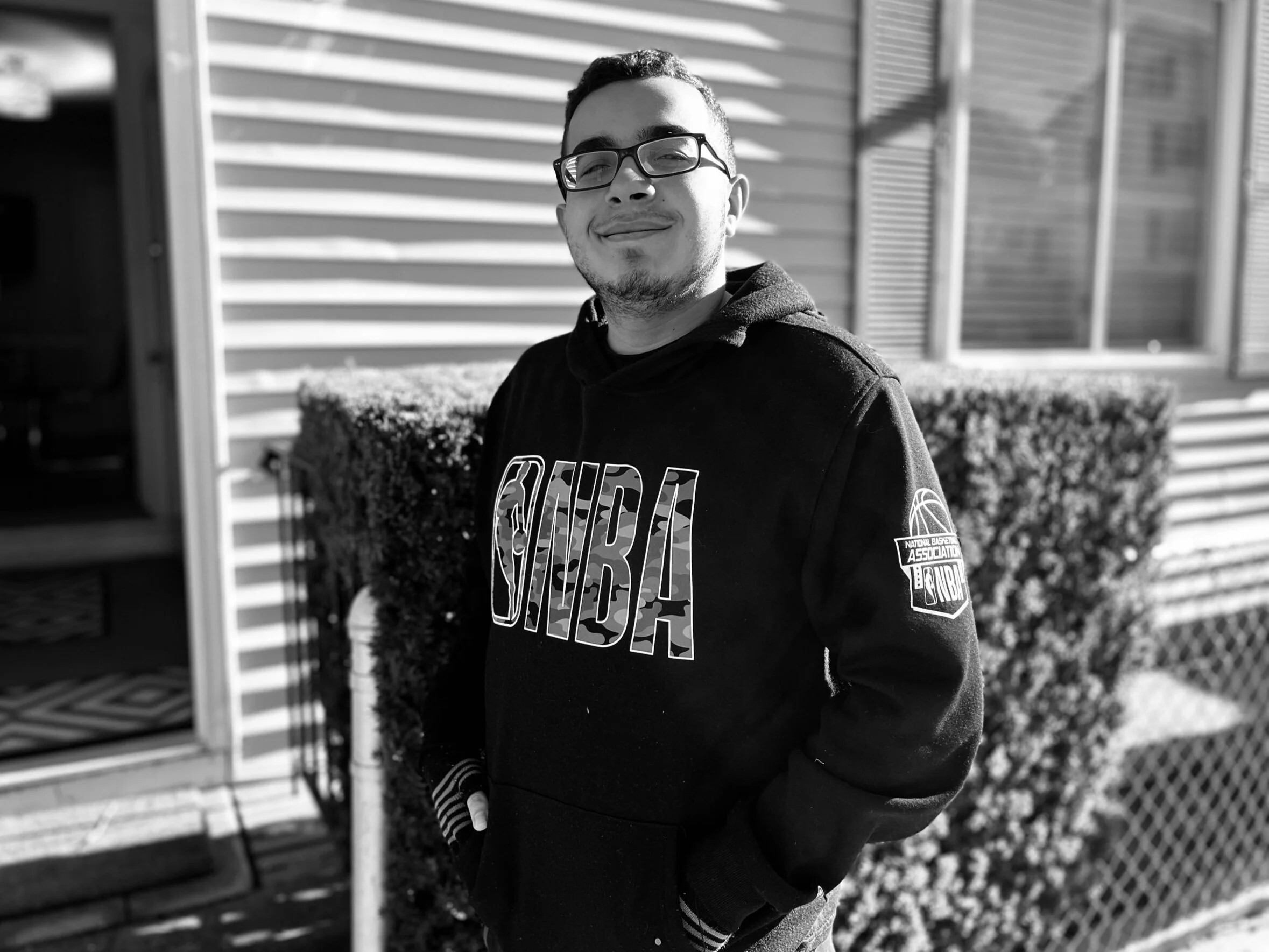
Jose, of Central Falls, used to dread coming to school because of bullies. He didn't tell his mother until his junior year how severe the harassment had become. His message to other students: don't ignore it - say something sooner. He’s learned a lot about the power of using his voice, and what happens when you stay silent about the things that hurt.
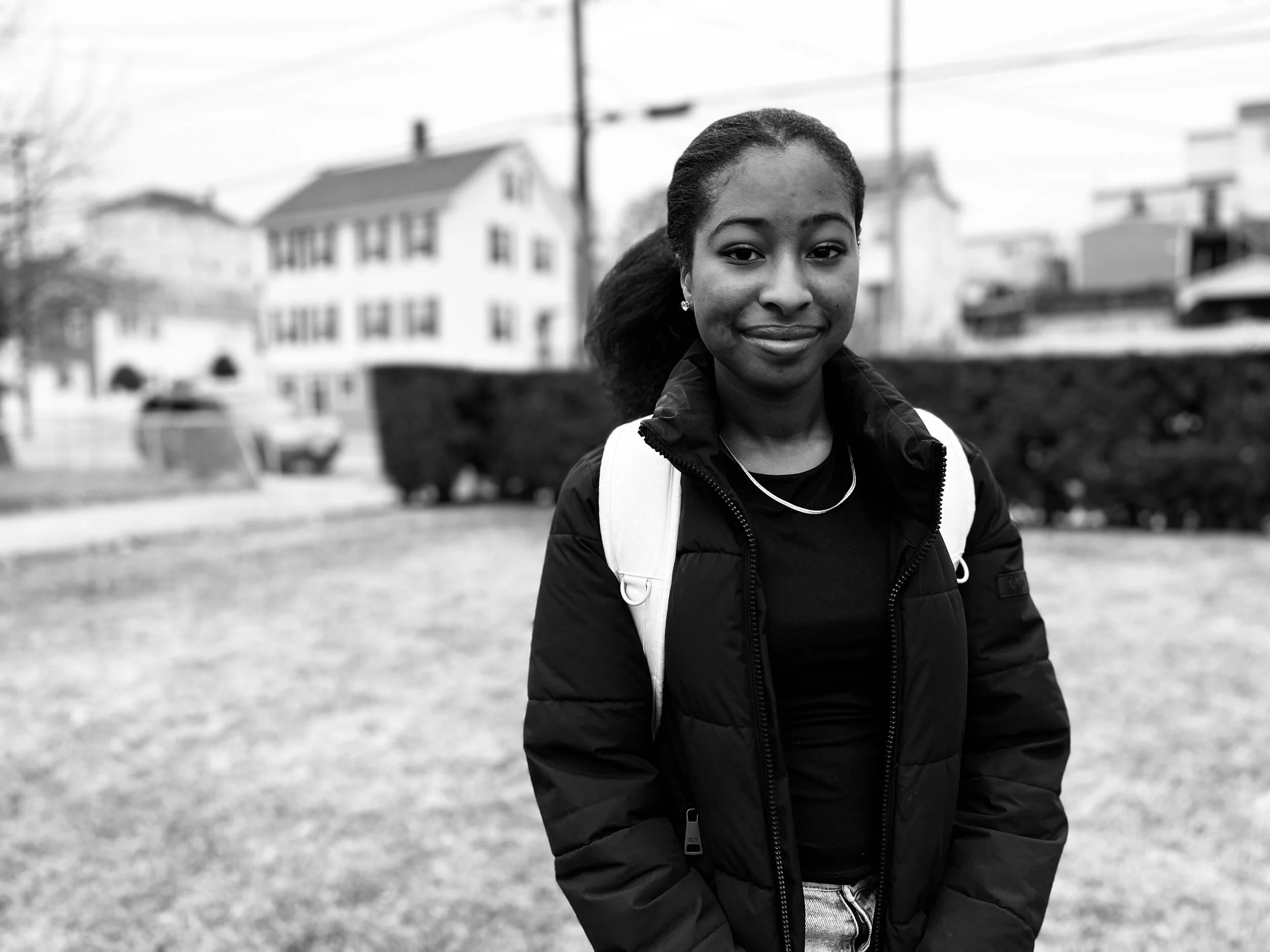
Kadjatou, of Pawtucket, wants people to notice her Guinean Fulani cultural background when they first meet her. Her jingling bracelets are especially important to her; the sound makes her happy, and these traditional accessories are the first thing that most people notice when they meet her. One bracelet was given to her as a baby, and it holds such special meaning for her that she plans to be buried with it.
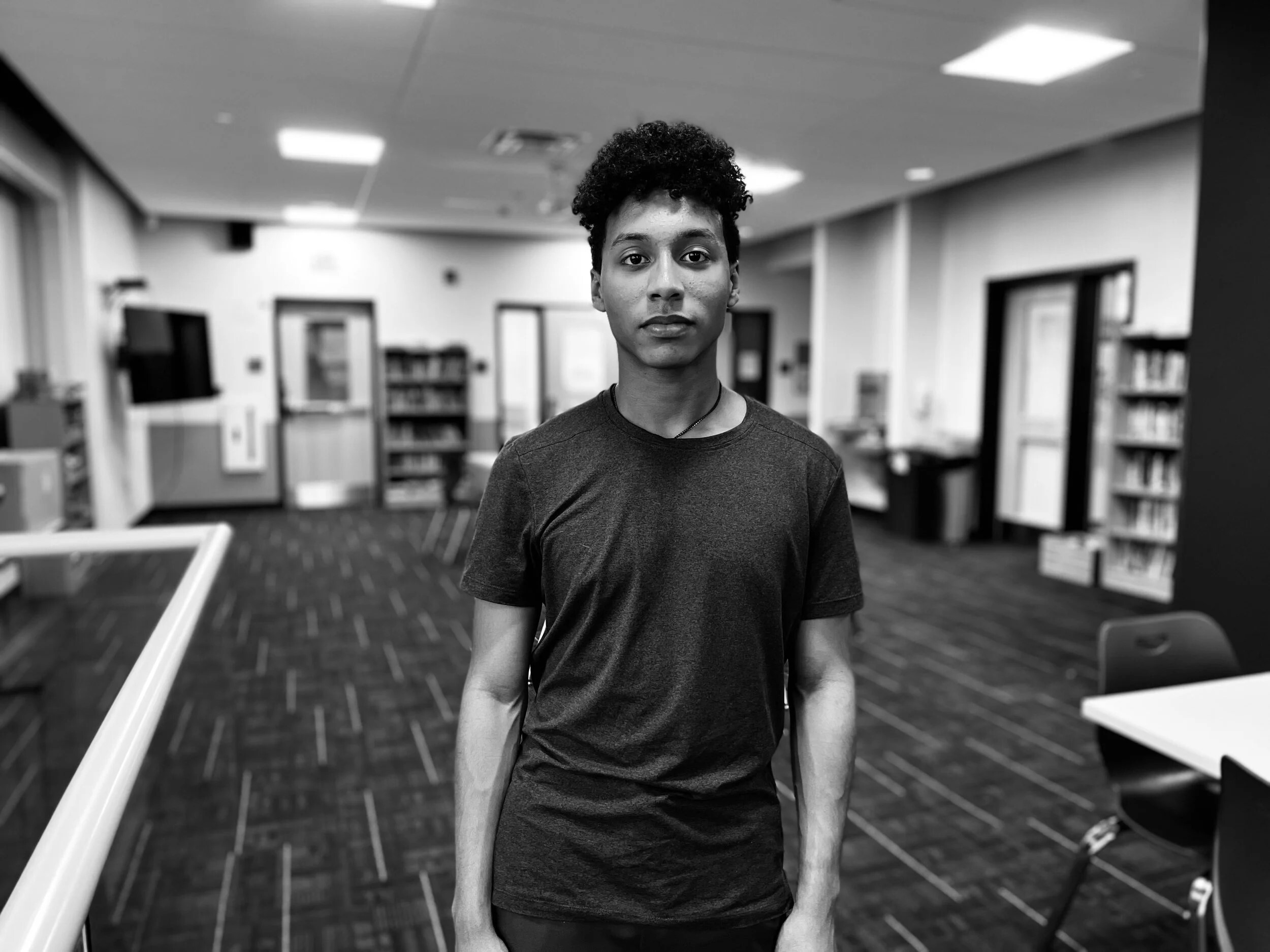
Joseph, of Newport, strives to ‘not be average.’ Working hard and focusing on success are very important to him. He’s been playing tennis for five years, and from his competitive experience, he’s learned about the value of understanding his opponent. Sometimes he puts on a ‘mask’ when he plays, controlling his emotions, which he equates to confronting some of life’s difficulties.
The Metropolitan Regional Career and Technical Center in Providence, where Broun previously worked, became the first participating school in the spring of 2023. Since then, four additional schools in Rhode Island and Massachusetts have joined the program, with some requesting return visits. About 135 students have been interviewed to date, with 74 recordings currently featured on the project's website, smalltruethings.org.
The Rhode Island Foundation awarded the project’s inaugural grant and served as the project’s sole funder. Some of the funding also enabled Broun to hire outside evaluators to assess the impact of Small True Things on students and school staff. The feedback exceeded her expectations.
"Small True Things is a project about listening," the evaluation report begins. "Not just the everyday kind of listening - like the kind that happens while checking a phone or multi-tasking - but the kind of listening that makes the person speaking feel real. Heard. Valued."
Heilman described the project's importance like this: "We're living in a time of intense political and cultural division. Kids are growing up in a digital world where it's easy to criticize and cancel in a virtual setting. It's increasingly easy to remain in silos of like-minded people and opinions. We’re living in one of the most divided political landscapes in generations, where hate and 'other-ification' are common, if not encouraged."
The impact has been tangible, and schools have found creative ways to integrate the recordings into their communities. Some feature them through Monday morning "Pick Me Ups," while others share them during school assemblies and staff meetings as cultural or emotional check-ins.
"It mattered that I got to tell my own story - because lots of kids don't get the chance."
"We have an administrative team within the staff, and we've played the kids' stories as a kind of warm-up, like a reminder that young people are at the forefront," MET Unity Principal Peter Lau responded to evaluators. The participating students expressed deep gratitude for the experience. Evaluators noted that students often described the interviews as "moments of introspection."
One student wrote, "It mattered that I got to tell my own story - because lots of kids don't get the chance."
The project has given quieter students a platform to find their voice. Some participants achieved healing through the experience, while others discovered it sparked family conversations that had been difficult to start.
Asked to answer her own question, “How would you describe yourself and what's important for people to know about you?,” Broun hesitated, admitting it was harder than she expected.
"I am so bad on the other side of the microphone," she laughed. "I think my work is important to me, and I want to make a difference and contribute."
Ultimately, Small True Things honors each student's unique ‘small’ story while simultaneously creating something larger — connections between strangers united by a shared human need to be heard and understood. And that makes all the difference.
To hear their stories, in their own words, click on the students' names above.
To hear more, visit smalltruethings.org.

